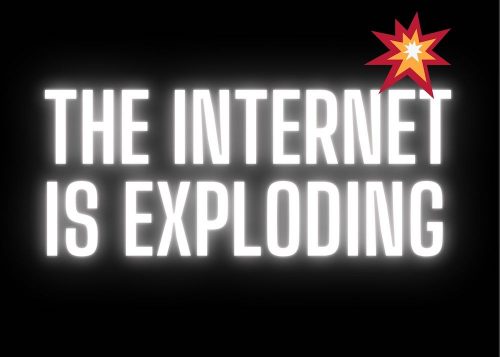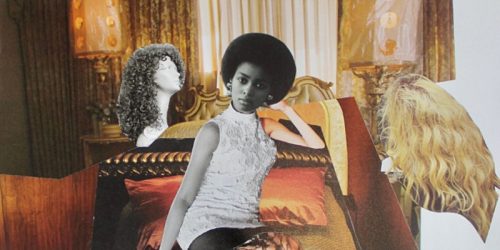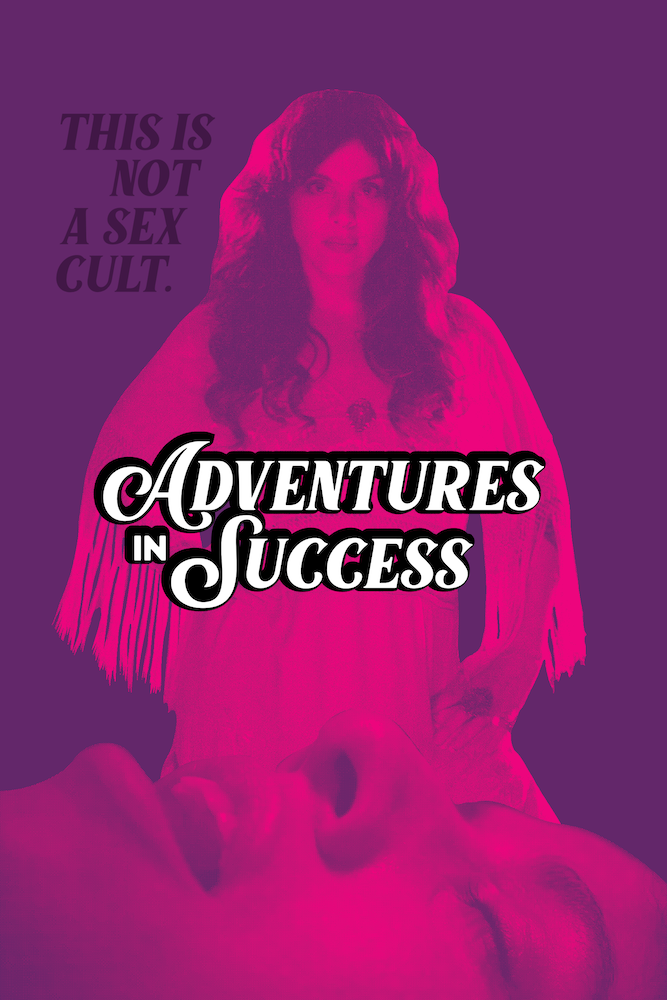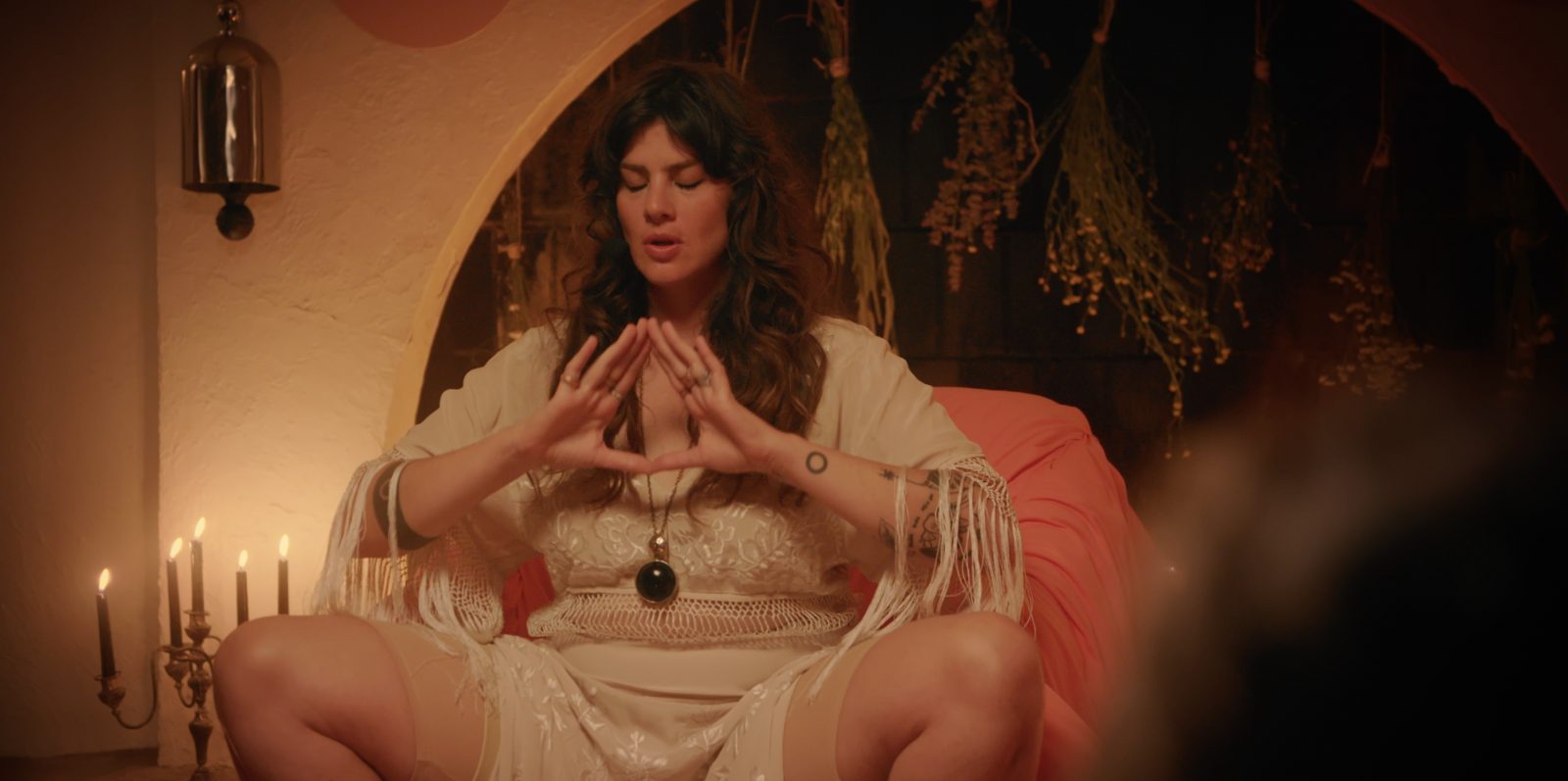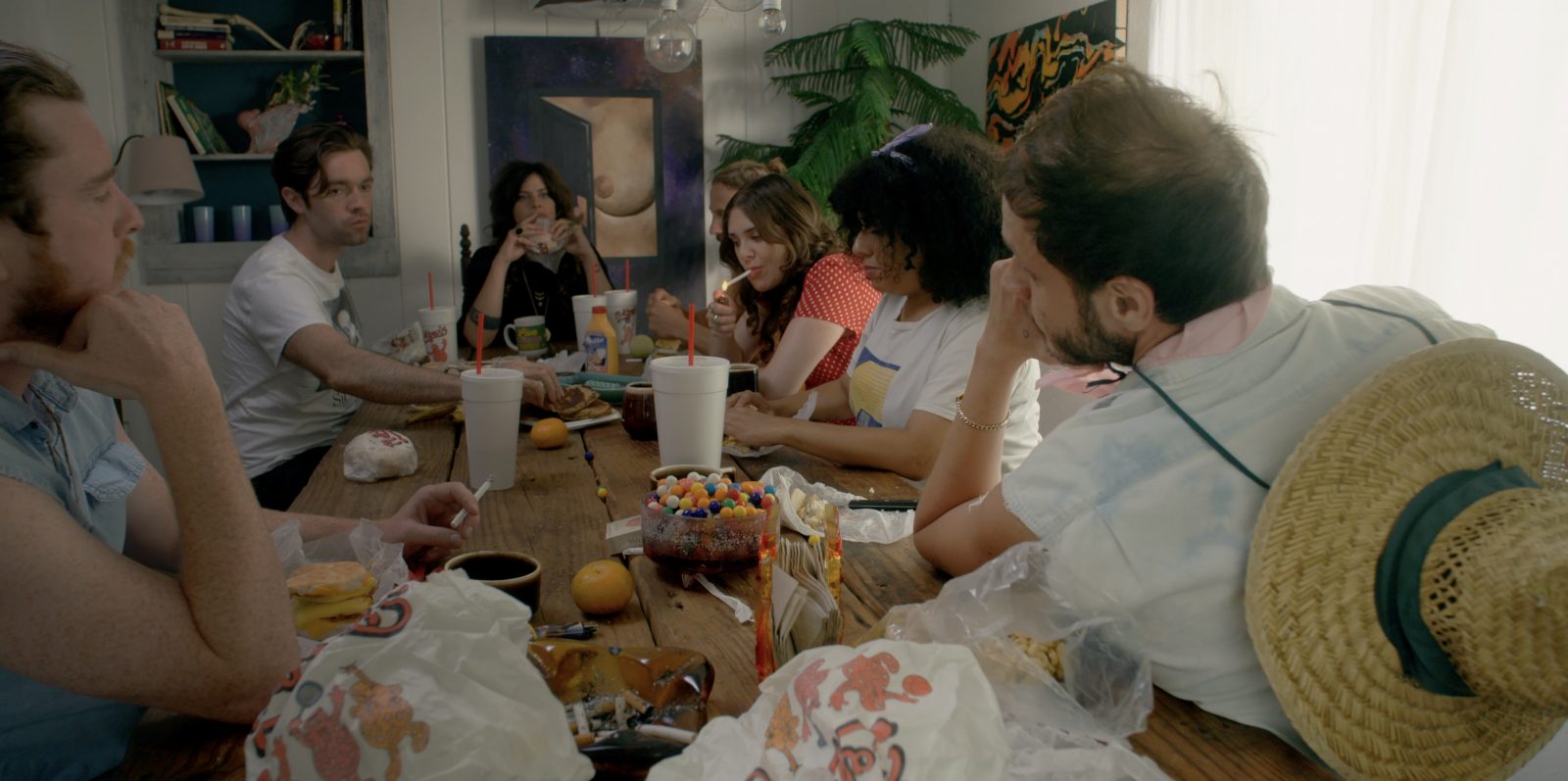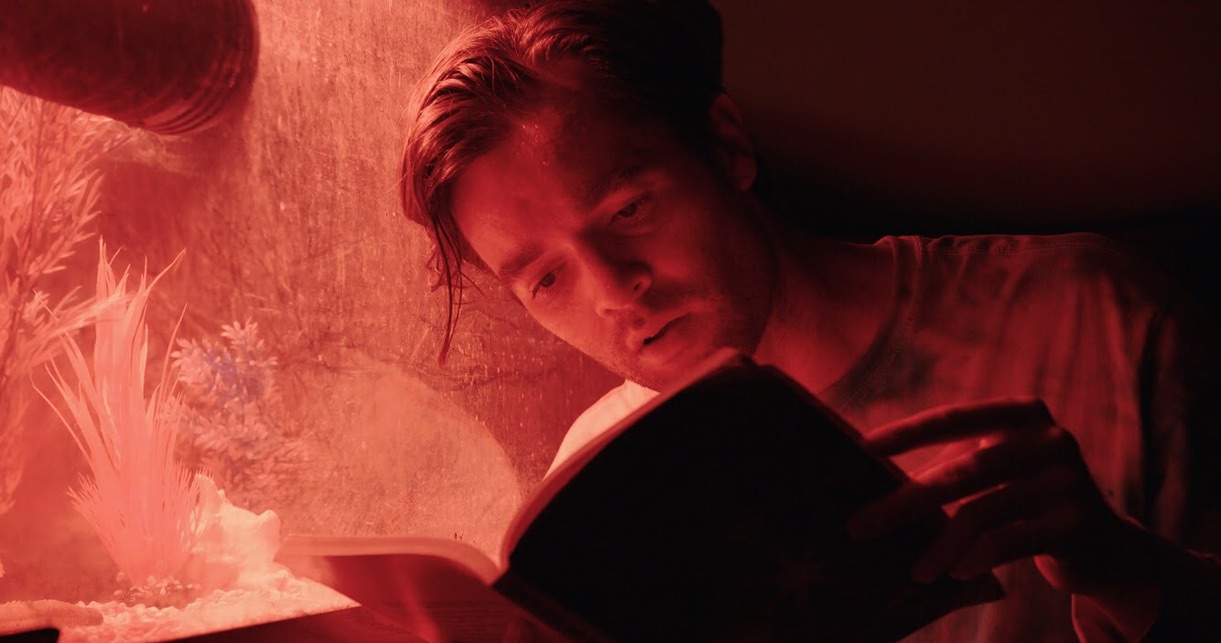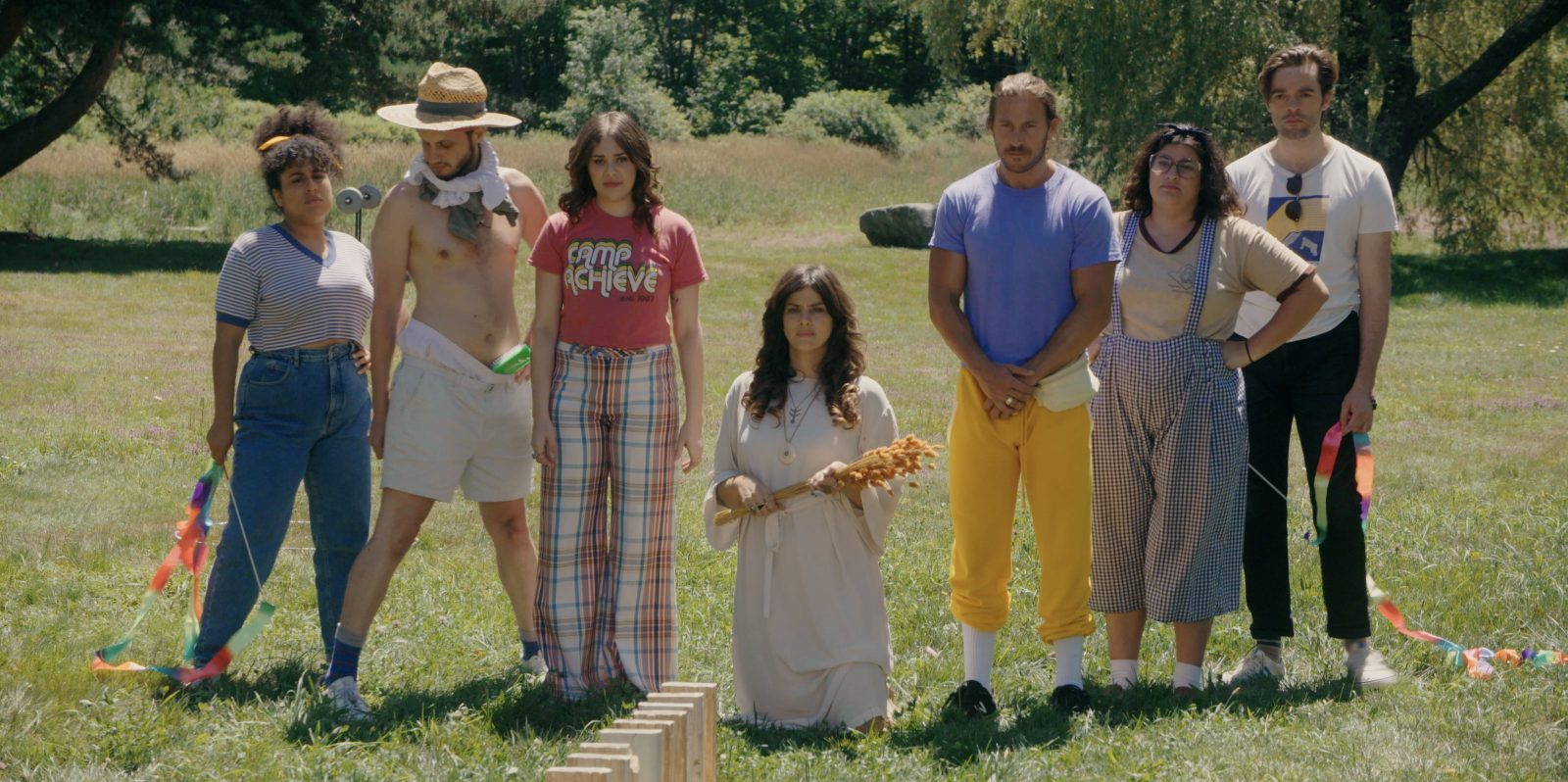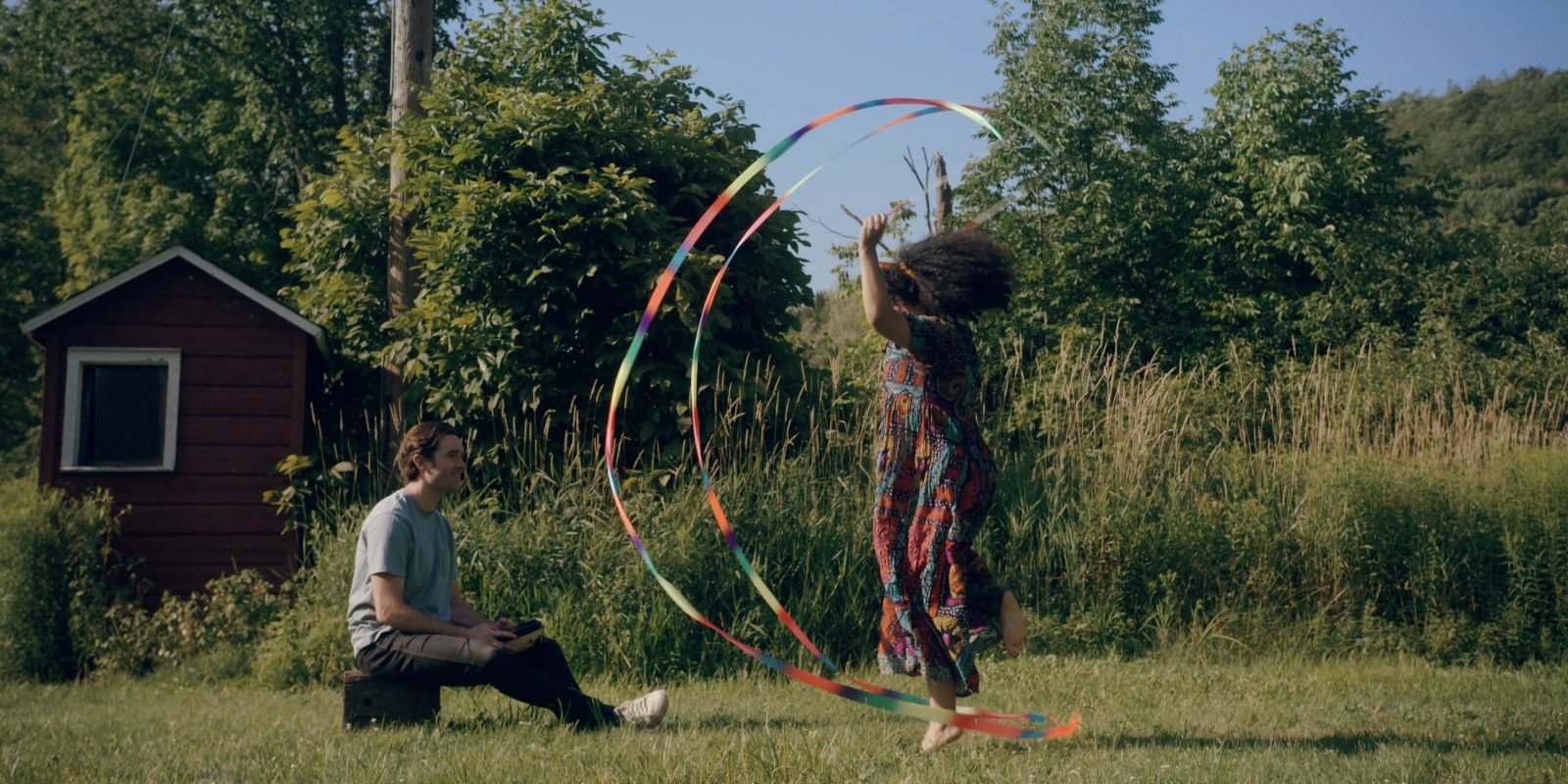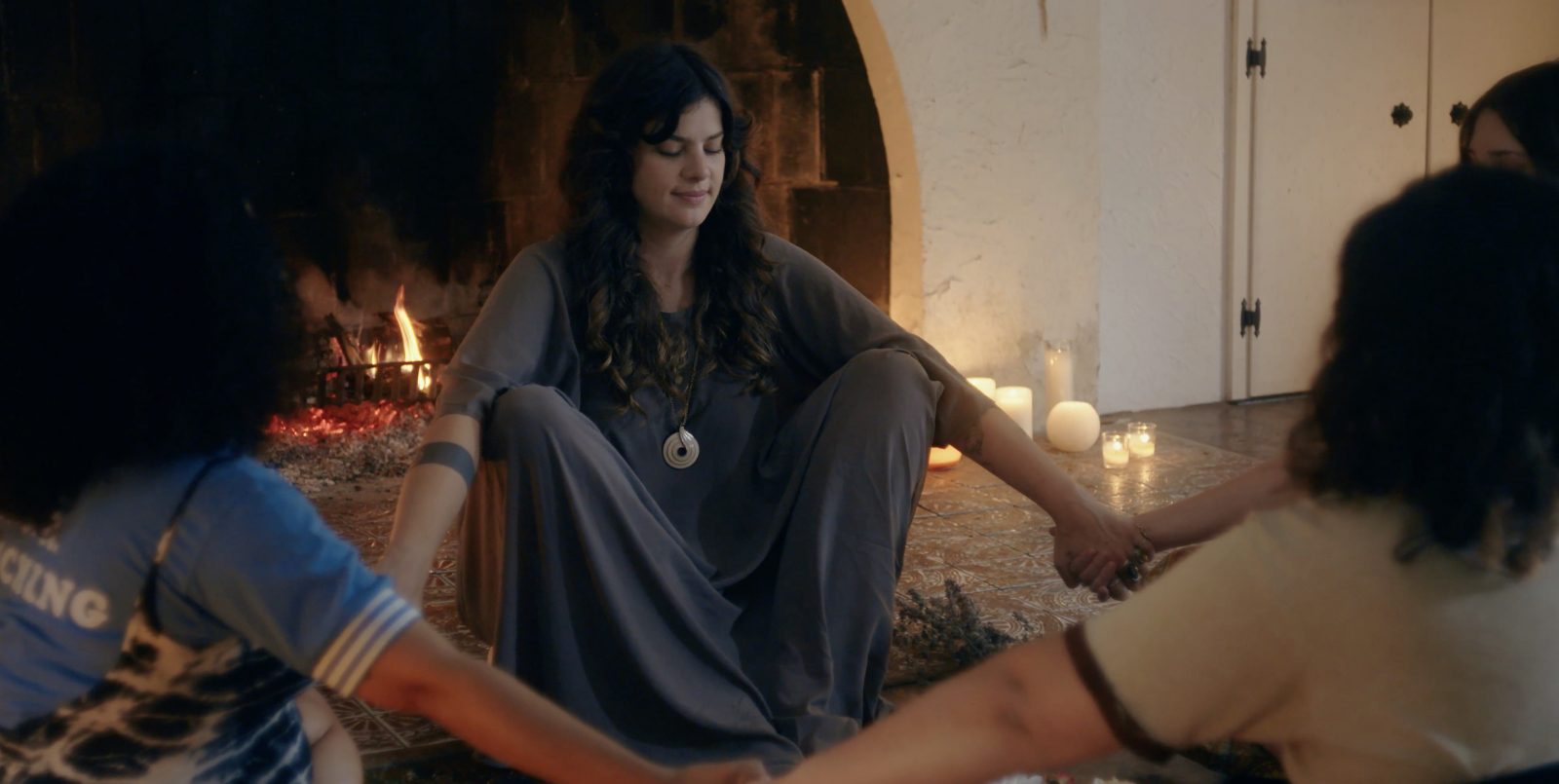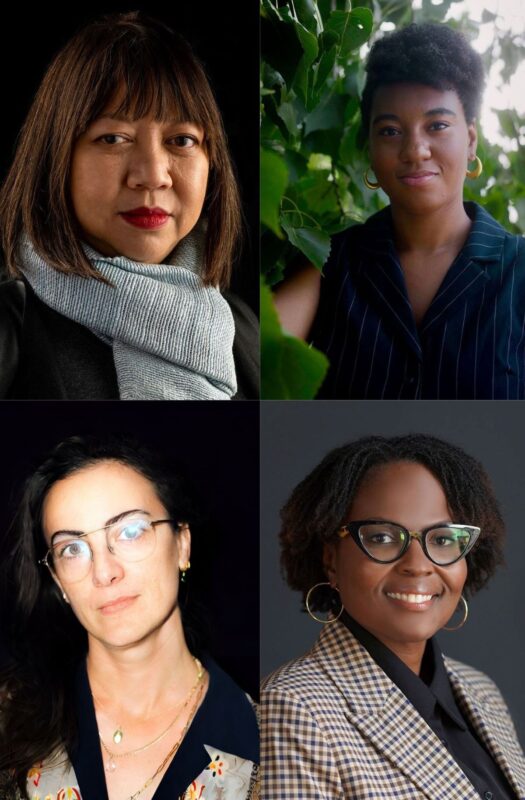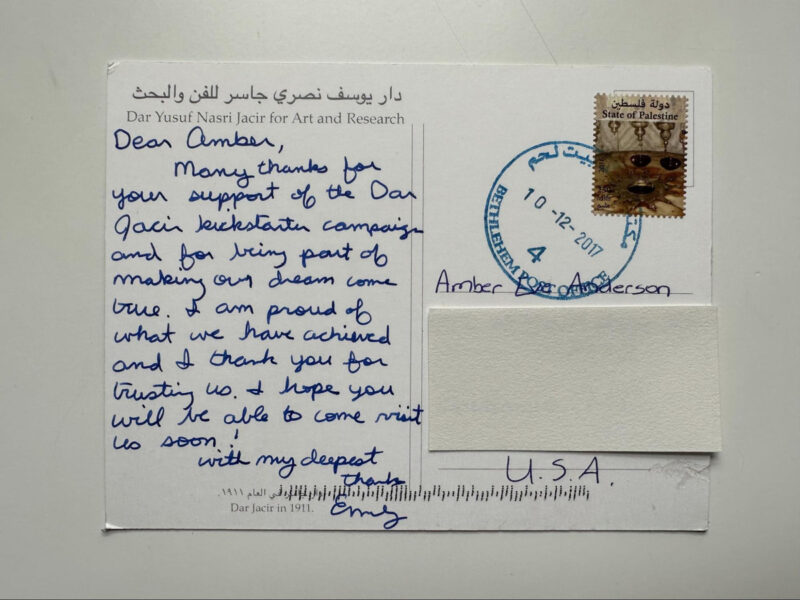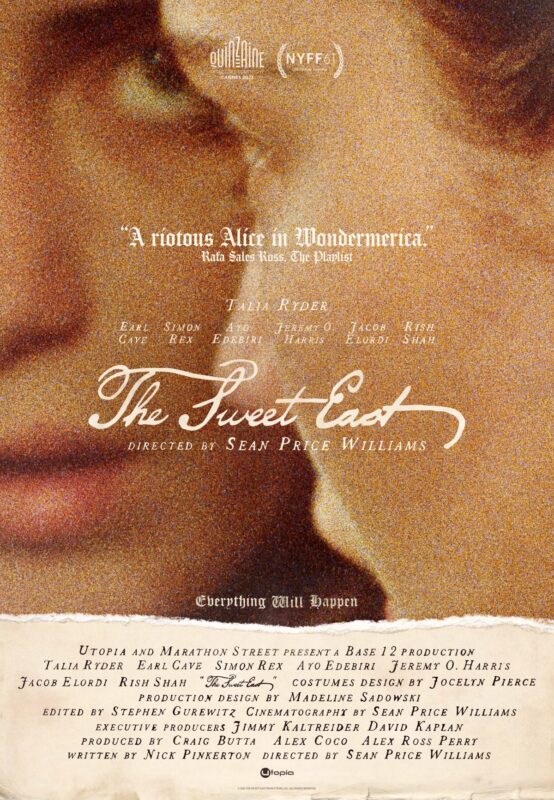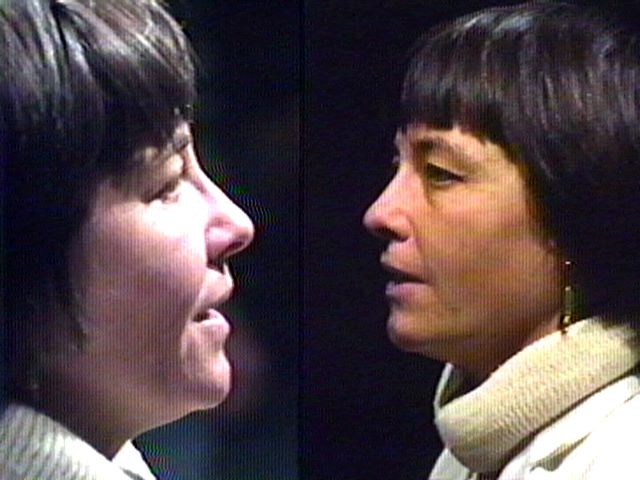How much of you is there in the character? How much of Peggy is just a total invention?
That’s a tricky question, because I’ve never quote-unquote “acted” before, despite, you know, performing and being on stage and just being out there. I never “capital A” acted. So I think there is a lot more of myself in the character than maybe I wanted to admit, because I felt like, on some level, I lacked a certain amount of skill to separate myself from the character and protect myself from some of the trauma that she was experiencing. I was kind of on call to be Peggy all the time. I did often struggle with my desire to do a certain thing or behave a certain way, and then think, “no, but a leader, this person might isolate themselves from other people, because they need to keep the font of their inspiration something of a secret or a mystery, in order to retain that type of divine authority.”
So I had to, on some level, suppress my need for approval from other people. And in certain ways be even more aggressive than I normally am. I do feel like I’m very outgoing, but I’m also desperately in need of other people’s approval. There were definitely times when that veneer was cracked, and I was a lot more vulnerable and easy to hurt. But I think on the whole it was like me struggling to be this person. I mean, that’s acting, right?
I was constantly preoccupied with how to manifest Peggy manifesting stuff because there is a level of tongue-in-cheek and naivete about her as well. It’s impossible for me to tell, but how much self-awareness does she have?
I think so many people, especially in Baltimore, are going to get such a kick out of you in this film because you’re just such a big personality we all know in real life from so many different contexts—music, art, sketch comedy, all kinds of performances, just being a social fixture in the creative scene. You’re such an all-around entertaining person to watch no matter what you’re doing.
Thank you! It’s really difficult to wrap my mind around, honestly, because in my mind I’m just still this awkward, kind of deeply insecure person who’s just trying my hand at a bunch of different things to see what sticks, and that is ultimately afraid of failure! Desperately afraid of failure to the point of immobility. It can be really difficult to see my life as a series of different things that have culminated in this one person, in this moment. Or I see it as a collection of random isolated situations. Just luck. Being in the right place at the right time instead of thinking, “I went out there and did it for myself!” I hope [the film] is interesting for people. In my heart of hearts, I sort of feel like, no matter what I do, I’ll just not be very good at it. So it would be really cool if people did like this.
I think all creative people can relate to that! Who doesn’t grapple with impostor syndrome? I think a lot of times the best artists are people who are just constantly trying new things and aren’t necessarily experts. I’d rather eat the bread made by the guy who’s not a dick about being a sourdough aficionado! I want to try the bakery fails… not some influencer-curated perfect bullshit bread!
That’s interesting because the whole point of being an influencer is that you craft this image. I think people have an image of me or version of me that really is always surprising—to me—to find out. Especially as I get older and I get further away from the time of almost hyperactivity… it’s really wild to think about the stuff that I’ve done and the amount of energy that I put into loving Baltimore’s cultural scene. I do feel like I couldn’t have done this without Baltimore. There literally isn’t a way that I could have done this without Baltimore. Jay, the director, had done stuff for Future Islands. And then he directed a video for Ed Schrader’s Music Beat. And Ed asked me to be in the video; a bunch of other people—Becca Morrin, Dan Deacon, Kevin Blackistone, DDm—were in the video as well. That was how I first met Jay. I wasn’t even supposed to be Peggy! The person who originally was supposed to be Peggy couldn’t do it, so he called and asked me to do it—and I still felt like it was a prank! I felt like I was Carrie at the prom! Like I was gonna get there—and I still kind of feel like it’s a prank—and there’s going to be some twist at the end, where I’ll be covered in fake blood, psychic, mental pig blood.
The other thing is that this was such a huge undertaking and involved so many people. It was such a collaborative effort. For me, the real joy was just being able to see other people who are in the film as well. They are un-fuckin-believable! Just amazing, amazing, amazing people…
I think that they really wanted me to bring myself to the role. I somehow did not anticipate an announcement that we will be living as our characters. That was a bit of a surprise. But I think it was something that we all sort of, weirdly, agreed on… thinking about how Christopher Guest movies operate—wanting us to have that kind of elasticity, that ease that is on display in movies like Best in Show… And getting inspiration from ‘80s and ‘90s [cinema with] a dreaminess and a sort of adolescent conflict that carries over. Especially in Peggy, I feel like, who’s a little bit of a big kid because she’s idealistic.
